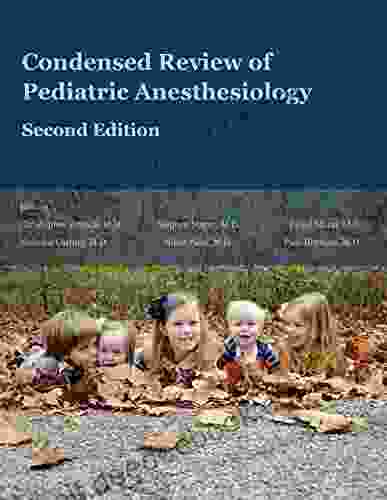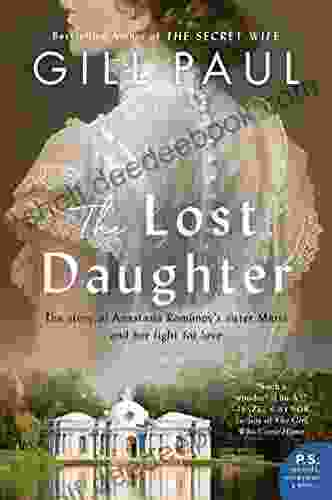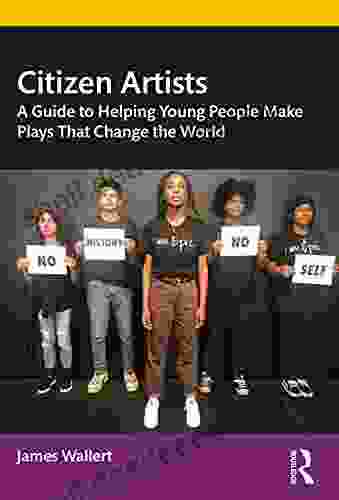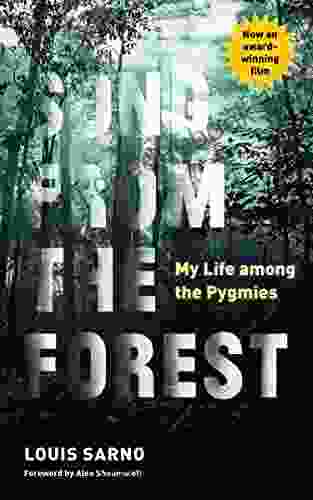A Comprehensive Guide to Empowering Young People to Create Plays that Transform the World

Theatre has the power to transform lives. It can educate, inspire, and empower people to make a difference in the world. For young people, theatre can be a particularly powerful tool for personal and social change.
This guide provides educators, mentors, and parents with a wealth of strategies and resources to support young people in creating plays that address social issues, inspire empathy, and promote positive change in their communities and beyond.
The first step to empowering young people to create transformative theatre is to create a safe and supportive environment. This means providing a space where they feel comfortable sharing their ideas, taking risks, and exploring their creativity.
5 out of 5
| Language | : | English |
| File size | : | 11080 KB |
| Screen Reader | : | Supported |
| Print length | : | 224 pages |
Here are some tips for creating a safe and supportive environment:
- Establish clear ground rules. Let young people know what is expected of them in terms of behavior and respect.
- Be patient and understanding. Young people need time to develop their skills and confidence.
- Provide positive feedback. Focus on the strengths of young people's work and offer constructive criticism in a supportive way.
- Encourage collaboration. Help young people to work together to create their plays. This can help them to develop their social skills and learn from each other.
- Be a role model. Show young people that you are passionate about theatre and that you believe in their ability to make a difference.
Once you have created a safe and supportive environment, you can begin to help young people choose a social issue to explore in their play. This is an important step, as it will help them to focus their research and writing.
Here are some tips for choosing a social issue:
- Start with the young people's interests. Ask them what they are passionate about and what they want to learn more about.
- Research different social issues. Help young people to learn about the different social issues that are facing their community and the world.
- Narrow down your choices. Once you have a list of potential social issues, help young people to narrow down their choices to one that they are particularly interested in and that they believe they can effectively address in a play.
Once young people have chosen a social issue, it is important for them to do thorough research. This will help them to understand the issue in depth and to develop informed opinions.
Here are some tips for researching a social issue:
- Use a variety of sources. Encourage young people to use books, articles, websites, and documentaries to learn about their chosen social issue.
- Talk to experts. Invite experts on the social issue to speak to young people or arrange for them to visit organizations that are working to address the issue.
- Experience the issue firsthand. If possible, arrange for young people to experience the issue firsthand, such as by visiting a homeless shelter or volunteering at a soup kitchen.
Once young people have researched their chosen social issue, they can begin to write their play. This is a challenging but rewarding process.
Here are some tips for writing a play:
- Start with a strong story. The story of your play should be engaging and relatable. It should also be clear and concise.
- Develop your characters. The characters in your play should be well-developed and believable. They should also be representative of the different perspectives on the social issue that you are exploring.
- Create a conflict. The conflict in your play should be central to the social issue that you are exploring. It should be a conflict that is both believable and engaging.
- Resolve the conflict. The resolution of your play should be satisfying and thought-provoking. It should also leave the audience with a sense of hope and inspiration.
Once you have written your play, it is time to produce it. This involves finding a venue, casting actors, rehearsing the play, and designing the set and costumes.
Here are some tips for producing a play:
- Find a venue. The venue for your play should be appropriate for the size and scope of your production. It should also be affordable and accessible.
- Cast actors. The actors in your play should be talented and committed. They should also be able to work well together as a team.
- Rehearse the play. Rehearsals are essential for ensuring that your play is well-rehearsed and polished. They also provide an opportunity for you to work with your actors to develop their characters and explore the themes of your play.
- Design the set and costumes. The set and costumes for your play should be visually appealing and appropriate for the story. They should also help to create the mood and atmosphere of your play.
Performing your play is a culmination of all of your hard work. It is an opportunity to share your message with the world and to make a difference in the lives of others.
Here are some tips for performing a play:
- Be confident. Believe in yourself and your play.
- Project your voice. Speak loudly and clearly so that everyone in the audience can hear you.
- Move around the stage. Use the stage to your advantage to create a dynamic and engaging performance.
- Connect with your audience. Make eye contact with the audience and draw them into your story.
- Have fun! Performing your play should be an enjoyable experience for both you and the audience.
Once you have performed your play, it is important to evaluate it. This will help you to learn from your experience and to improve your work in the future.
Here are some tips for evaluating a play:
- Get feedback from others. Ask your actors, crew, and audience members for feedback on your play.
- Reflect on your experience. Take some time to reflect on the process of creating and performing your play. What did you learn? What would you do differently next time?
- Set goals for the future. Use your evaluation to set goals for your future work. What do you want to achieve with your next play?
Creating plays that transform the world is a challenging but rewarding endeavor. By following the strategies and resources outlined in this guide, you can empower young people to use theatre to make a difference in the world.
- Theatre for Change (https://www.theatreforchange.org/)
- Applied Drama (https://www.applieddrama.org/)
- Drama for Life (https://www.dramaforlife.org/)
- The National Youth Theatre (https://www.nyt.org.uk/)
- The Royal Court Theatre (https://www.royalcourttheatre.com/)
5 out of 5
| Language | : | English |
| File size | : | 11080 KB |
| Screen Reader | : | Supported |
| Print length | : | 224 pages |
Do you want to contribute by writing guest posts on this blog?
Please contact us and send us a resume of previous articles that you have written.
 Novel
Novel Page
Page Chapter
Chapter Text
Text Genre
Genre Library
Library Paperback
Paperback Newspaper
Newspaper Sentence
Sentence Bookmark
Bookmark Glossary
Glossary Bibliography
Bibliography Synopsis
Synopsis Tome
Tome Classics
Classics Library card
Library card Biography
Biography Autobiography
Autobiography Memoir
Memoir Reference
Reference Dictionary
Dictionary Thesaurus
Thesaurus Character
Character Resolution
Resolution Catalog
Catalog Card Catalog
Card Catalog Stacks
Stacks Periodicals
Periodicals Study
Study Scholarly
Scholarly Lending
Lending Academic
Academic Reading Room
Reading Room Rare Books
Rare Books Special Collections
Special Collections Interlibrary
Interlibrary Literacy
Literacy Thesis
Thesis Reading List
Reading List Textbooks
Textbooks Karen Walker
Karen Walker Camille Blachowicz
Camille Blachowicz Paul Hendricks
Paul Hendricks Joseph Addison
Joseph Addison E C R Lorac
E C R Lorac Lisa Daily
Lisa Daily Carole Morris
Carole Morris Marcelo S Perlin
Marcelo S Perlin Joshua Cohen
Joshua Cohen Nancy L Witherell
Nancy L Witherell Beverly Crider
Beverly Crider Ron G Holland
Ron G Holland Catherine Nolin
Catherine Nolin Melanie Joy
Melanie Joy Charles Fried
Charles Fried Anthony Poulton Smith
Anthony Poulton Smith Kevin Martin
Kevin Martin Mike Greene
Mike Greene Joe Tarr
Joe Tarr Lizbeth Meredith
Lizbeth Meredith
Light bulbAdvertise smarter! Our strategic ad space ensures maximum exposure. Reserve your spot today!

 Jedidiah HayesReimagining The Call To Teach: Inspiring and Equipping a New Generation of...
Jedidiah HayesReimagining The Call To Teach: Inspiring and Equipping a New Generation of... Francis TurnerFollow ·5.9k
Francis TurnerFollow ·5.9k Jerry WardFollow ·16.3k
Jerry WardFollow ·16.3k Francisco CoxFollow ·11.8k
Francisco CoxFollow ·11.8k Ruben CoxFollow ·19.5k
Ruben CoxFollow ·19.5k Hudson HayesFollow ·2.1k
Hudson HayesFollow ·2.1k Jacob FosterFollow ·19.3k
Jacob FosterFollow ·19.3k Chance FosterFollow ·19.2k
Chance FosterFollow ·19.2k Thomas PowellFollow ·18.7k
Thomas PowellFollow ·18.7k

 Beau Carter
Beau CarterLater Political Writings: A Window into the Evolution of...
Political thought, like...

 Tyrone Powell
Tyrone PowellThe Essential Guide to Family School Partnerships:...
: The Importance of...

 Christian Barnes
Christian BarnesAdvancing Folkloristics: Conversations with Jesse...
Dr. Jesse Fivecoate is an...

 Jake Carter
Jake CarterHal Leonard DJ Method Connell Barrett: A Comprehensive...
Are you ready...

 John Updike
John UpdikeCondensed Review of Pediatric Anesthesiology Second...
Condensed Review of...

 Guillermo Blair
Guillermo BlairExploring the Complexities of Motherhood and Identity: A...
Elena Ferrante's "The Lost...
5 out of 5
| Language | : | English |
| File size | : | 11080 KB |
| Screen Reader | : | Supported |
| Print length | : | 224 pages |










